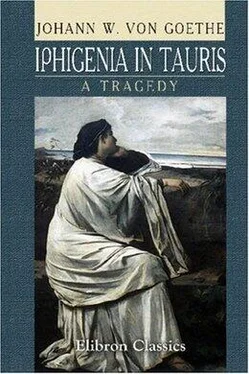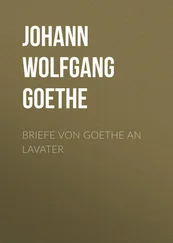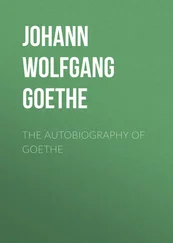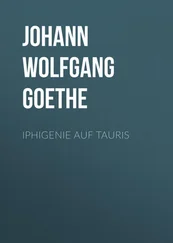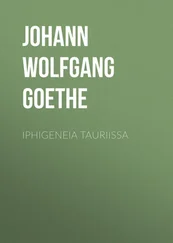IPHIGENIA.
Yes, thou shalt know me.
Now conclude the tale
Of which thy brother only told me half:
Relate their end, who coming home from Troy,
On their own threshold met a doom severe
And most unlook'd for.
I, though but a child
When first conducted hither, well recall
The timid glance of wonder which I cast
On those heroic forms.
When they went forth, it seem'd as though
Olympus from her womb
Had cast the heroes of a by–gone world,
To frighten Ilion; and, above them all,
Great Agamemnon tower'd pre–eminent!
Oh tell me! Fell the hero in his home,
Though Clytemnestra's and Ægisthus' wiles?
ORESTES.
IPHIGENIA.
Unblest Mycene! Thus the sons
Of Tantalus, with barbarous hands, have sown
Curse upon curse; and, as the shaken weed
Scatters around a thousand poison–seeds,
So they assassins ceaseless generate,
Their children's children ruthless to destroy.—
Now tell the remnant of thy brother's tale,
Which horror darkly hid from me before.
How did the last descendant of the race,—
The gentle child, to whom the Gods assign'd
The office of avenger,—how did he
Escape that day of blood? Did equal fate
Around Orestes throw Avernus' net?
Say, was he saved? and is he still alive?
And lives Electra, too?
ORESTES.
IPHIGENIA.
Golden Apollo, lend thy choicest beams!
Lay them an offering at the throne of Jove!
For I am poor and dumb.
ORESTES.
If social bonds
Or ties more close connect thee with this house,
As this thy joy evinces, rein thy heart;
For insupportable the sudden plunge
From happiness to sorrow's gloomy depth.
As yet thou only know'st the hero's death.
IPHIGENIA.
And is not this intelligence enough?
ORESTES.
Half of the horror yet remains untold,
IPHIGENIA.
Electra and Orestes both survive,
What have I then to fear?
ORESTES.
And fear'st thou nought
For Clytemnestra?
IPHIGENIA.
Her, nor hope nor fear
Have power to save.
ORESTES.
She to the land of hope
Hath bid farewell.
IPHIGENIA.
Did her repentant hand
Shed her own blood?
ORESTES.
Not so; yet her own blood
Inflicted death.
IPHIGENIA.
Speak less ambiguously.
Uncertainty around my anxious head
Her dusky, thousand–folded, pinion waves.
ORESTES.
Have then the powers above selected me
To be the herald of a dreadful deed,
Which, in the drear and soundless realms of night,
I fain would hide for ever? 'Gainst my will
Thy gentle voice constrains me; it demands,
And shall receive, a tale of direst woe.
Electra, on the day when fell her sire,
Her brother from impending doom conceal'd;
Him Strophius, his father's relative,
With kindest care receiv'd, and rear'd the child
With his own son, named Pylades, who soon
Around the stranger twin'd the bonds of love.
And as they grew, within their inmost souls
There sprang the burning longing to revenge
The monarch's death. Unlookd for, and disguis'd,
They reach Mycene, feigning to have brought
The mournful tidings of Orestes' death,
Together with his ashes. Them the queen
Gladly receives. Within the house they enter;
Orestes to Electra shows himself:
She fans the fires of vengeance into flame,
Which in the sacred presence of a mother
Had burn'd more dimly. Silently she leads
Her brother to the spot where fell their sire;
Where lurid blood–marks, on the oft–wash'd floor,
With pallid streaks, anticipate revenge.
With fiery eloquence she pictures forth
Each circumstance of that atrocious deed,—
Her own oppress'd and miserable life,
The prosperous traitor's insolent demeanour,
The perils threat'ning Agamemnon's race
From her who had become their stepmother;
Then in his hand the ancient dagger thrusts,
Which often in the house of Tantalus
With savage fury rag'd,—and by her son
Is Clytemnestra slain.
IPHIGENIA.
Immortal powers!
Whose pure and blest existence glides away
'Mid ever shifting clouds, me have ye kept
So many years secluded from the world,
Retain'd me near yourselves, consign'd to me
The childlike task to feed the sacred fire,
And taught my spirit, like the hallow'd flame,
With never–clouded brightness to aspire
To your pure mansions,—but at length to feel
With keener woe the misery of my house?
Oh tell me of the poor unfortunate!
Speak of Orestes!
ORESTES.
Would that he were dead!
Forth from his mother's blood her ghost arose,
And to the ancient daughters of the night
Cries,—"Let him not escape,—the matricide!
Pursue the victim, dedicate to you!"
They hear, and glare around with hollow eyes,
Like greedy eagles. In their murky dens
They stir themselves, and from the corners creep
Their comrades, dire Remorse and pallid Fear;
Before them fumes a mist of Acheron;
Perplexingly around the murderer's brow
The eternal contemplation of the past
Rolls in its cloudy circles. Once again
The grisly band, commissioned to destroy,
Pollute earth's beautiful and heaven–sown fields,
From which an ancient curse had banish'd them.
Their rapid feet the fugitive pursue;
They only pause to start a wilder fear.
IPHIGENIA.
Unhappy one; thy lot resembles his,
Thou feel'st what he, poor fugitive, must suffer.
ORESTES.
What say'st thou? why presume my fate like his?
IPHIGENIA.
A brother's murder weighs upon thy soul;
Thy younger brother told the mournful tale.
ORESTES.
I cannot suffer that thy noble soul
Should be deceiv'd by error. Rich in guile,
And practis'd in deceit, a stranger may
A web of falsehood cunningly devise
To snare a stranger;—between us be truth.
I am Orestes! and this guilty head
Is stooping to the tomb, and covets death;
It will be welcome now in any shape.
Whoe'er thou art, for thee and for my friend
I wish deliverance;—I desire it not.
Thou seem'st to linger here against thy will;
Contrive some means of flight, and leave me here:
My lifeless corpse hurl'd headlong from the rock,
My blood shall mingle with the dashing waves,
And bring a curse upon this barbarous shore!
Return together home to lovely Greece,
With joy a new existence to commence.
[ORESTES
retires
.
IPHIGENIA.
At length Fulfilment, fairest child of Jove,
Thou dost descend upon me from on high!
How vast thine image! scarce my straining eye
Can reach thy hands, which, fill'd with golden fruit
And wreaths of blessing, from Olympus' height
Shower treasures down. As by his bounteous gifts
We recognize the monarch (for what seems
To thousands opulence is nought to him),
So you, ye heavenly Powers, are also known
By bounty long withheld, and wisely plann'd.
Ye only know what things are good for us;
Ye view the future's wide–extended realm;
While from our eye a dim or starry veil
The prospect shrouds. Calmly ye hear our prayers,
When we like children sue for greater speed.
Not immature ye pluck heaven's golden fruit;
And woe to him, who with impatient hand,
His date of joy forestalling, gathers death.
Let not this long–awaited happiness,
Which yet my heart hath scarcely realiz'd,
Like to the shadow of departed friends,
Glide vainly by with triple sorrow fraught!
Читать дальше
